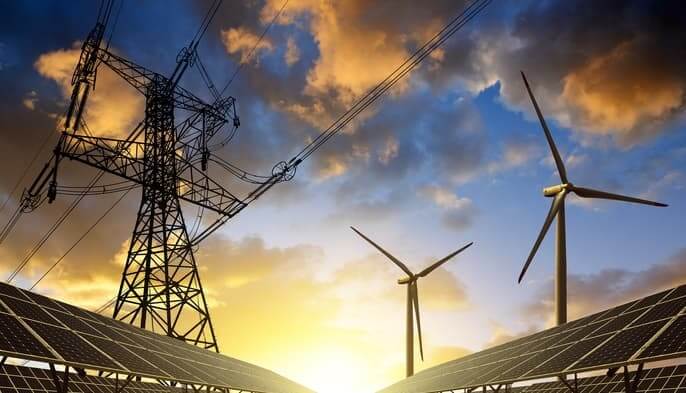As part of its 2019 integrated resource plan (IRP), Georgia Power is proposing new renewable energy programs, including a request to approve the procurement of up to 1 GW of new renewable resources.
If the plan is approved by the Georgia Public Service Commission (PSC), the total renewable energy capacity would increase to 18% of Georgia Power’s portfolio by 2024. The company, the largest electric subsidiary of Southern Co., notes that it purchases only the null energy output from some renewable generating facilities that have contracted to sell that energy to Georgia Power. Ownership of the associated renewable energy credits (RECs) is specified in each respective power purchase agreement, and the party that owns the RECs retains the right to use them.
Georgia Power files an IRP every three years to outline how it will deliver energy to its 2.5 million customers over the next 20 years. The 2019 plan is a result of an in-depth IRP process, which includes projections of future fuel costs, load and energy forecasts, an analysis of available generation technologies, a 10-year transmission plan, and an economic assessment of potential and proposed energy efficiency and demand response programs. The company also evaluates the cost-effectiveness of its generating resources given changing environmental regulations and emerging technologies and discusses the growing importance of resilience to the electric system.
“At Georgia Power, we are committed to making smart investments for Georgia’s energy future while ensuring our customers have the clean, safe, reliable and affordable energy they expect and deserve,” says Allen Reaves, senior vice president and senior production officer at Georgia Power. “Working with the Georgia Public Service Commission, we have invested in a diverse energy mix of nuclear, natural gas, hydro, renewables, coal and energy efficiency resources in order to maintain high levels of reliability for our customers that have resulted in rates that are 15 percent below the national average.”
The 2019 plan also proposes energy efficiency targets similar to those approved in previous IRPs while adding new energy-saving programs for both residential and commercial customers. By 2022, these programs are designed to help reduce peak demand approximately 1,600 MW, which is 10% of the company’s current peak demand.
Elements of the filing include as follows:
- Requesting the decertification of four coal units at Plant Hammond near Rome, Ga.;
- Requesting the decertification of one coal unit at Plant McIntosh near Rincon in southeast Georgia;
- Seeking approval to issue two requests for proposals to explore potential market opportunities for future generation needs;
- Acknowledging the continued economic pressure felt on coal-fired units, including Plant Bowen units 1 and 2 in Cartersville, Ga.;
- Proposing not to renew its operating licenses for the Langdale and Riverview hydro project dams (representing 0.4 MW of generating resources), located on the Chattahoochee River in west Georgia, initiating a multiyear review process with the Federal Energy Regulatory Commission that includes a request for eventual removal of the dams;
- Seeking approval of its environmental compliance strategy, which includes plans to permanently close all of its ash ponds in full compliance with the federal Coal Combustion Residuals (CCR) rule, as well as the more stringent requirements of Georgia’s state CCR rule.
The process to finalize the energy plan will continue through the next several months and will allow for public input and hearings before the PSC votes on it this summer, according to the Sierra Club, which is applauding Georgia Power’s announcement.
“We’re extremely pleased that Georgia Power is moving forward with the long-overdue coal retirement announcements at Plant Hammond and Plant McIntosh and is moving Georgia forward on solar with much-needed clean energy procurements,” says Stephen Stetson, representative for the Sierra Club’s Beyond Coal campaign in Georgia. “We’re also glad the company appears to be avoiding the traps bedeviling other utilities in neighboring states: new fossil fuels build-out and the dangers of fracked gas.
“We’re confident that Georgia’s energy needs can be met with a safe, coal-free grid, powered 100 percent by clean, abundant solar and wind and bolstered by robust energy efficiency, and we look forward to being part of the process to keep moving in that direction.”




